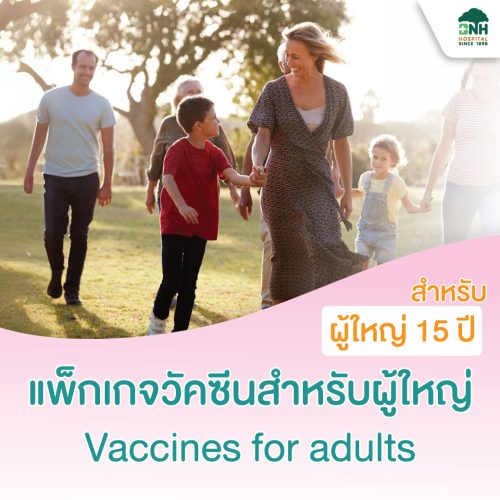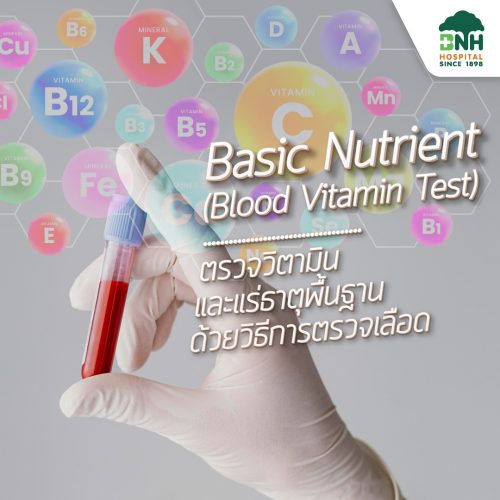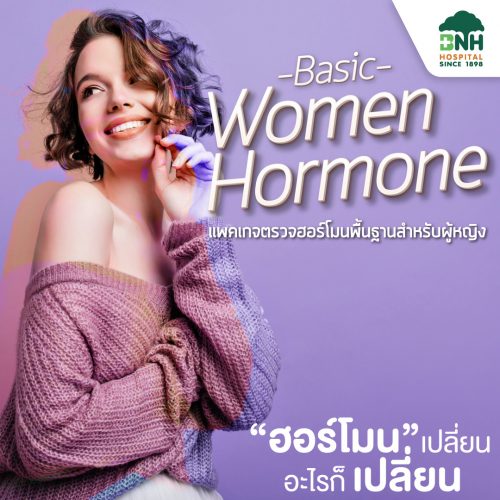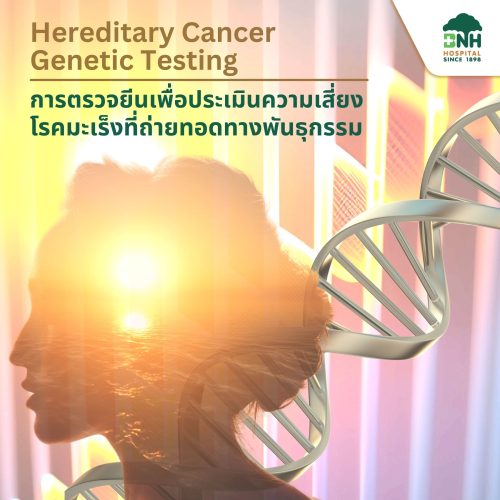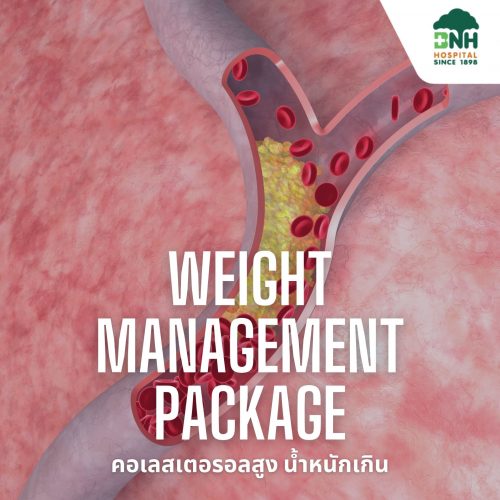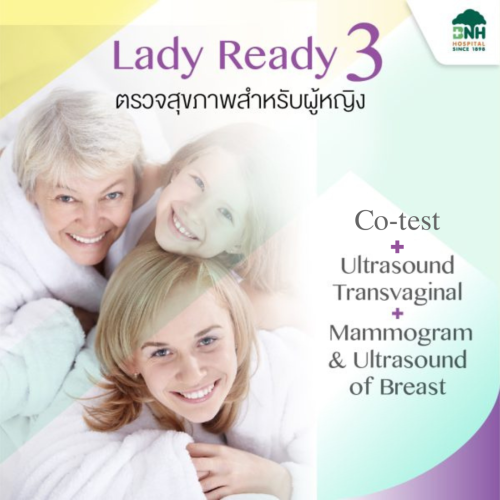1. Services are available at Medicine Depeartment 4th floor. Call for appointment at 02-022-0700 ext. 4421-4423, 02-022-0843
2. Vaccine Packages for adults : Prices include hospital service fee but do not include doctor’s fee.
3. Pneumococcal vaccine and Zoster vaccine should not be administered at the same time. It is recommended to space out the vaccinations by at least 4 weeks.
4. Influenza Vaccine for elderly should not be administered concurrently with other vaccines. It is recommended to space out the vaccinations by at least 2 weeks.
5. Doctor’s consultation is recommended prior to vaccination for patients with health conditions.
6. BNH Hospital reserves the rights to alter or amend the prices and conditions without prior notice.
read more about each type of vaccine
Influenza/FLU Vaccine
Influenza (“flu”) is a contagious disease that spreads every rainy season in tropical countries and winter in Europe. Flu is caused by influenza viruses, and is spread mainly by coughing, sneezing, and close contact. The risk of getting flu is highest among children and elderly. Symptoms come on suddenly and may last several days. They can include:
- fever/chills
- sore throat
- muscle aches
- fatigue
- cough
- headache
- runny or stuffy nose
Flu can make some people much sicker than others. These people include young children, people 65 and older, pregnant women, and people with certain health conditions — such as heart, lung or kidney disease, nervous system disorders, or a weakened immune system. Flu vaccination is especially important for these people, and anyone in close contact with them. Flu can also lead to pneumonia, and make existing medical conditions worse. Influenza vaccine is the best protection against flu and its complications.
Alternative treatment
You are getting an injectable flu vaccine, which is either an “inactivated” or “recombinant” vaccine. These vaccines do not contain any live influenza virus. Flu viruses are always changing. Each year’s flu vaccine is made to protect against 3 or 4 viruses that are likely to cause disease that year. Flu vaccine cannot prevent all cases of flu, but it is the best defense against the disease.
It takes about 2 weeks for protection to develop after the vaccination, and protection lasts several months to a year.
Some people should not get this vaccine
- If you have any severe, life-threatening allergies or ever had a life-threatening allergic reaction after a dose of flu vaccine, or have a severe allergy to any part of this vaccine, including an allergy to gelatin, antibiotics, or eggs.
- People with a history of Guillain-Barré Syndrome (a severe paralyzing illness, also called GBS).
- If you are not feeling well. It is usually okay to get flu vaccine when you have a mild illness, but you might be advised to wait until you feel better.
Risk and side effect of treatment
There is a chance of side effects which are usually mild and go away on their own.
Problems that could happen after any vaccine:
- Brief fainting spells can happen. Sitting or lying down for about 15 minutes can help prevent fainting and injuries. Tell your doctor if you feel dizzy, or have vision changes or ringing in the ears.
- Severe shoulder pain and reduced range of motion in the arm where a shot was given.
- Severe allergic reactions from a vaccine are very rare. If one were to occur, it would usually be within a few minutes to a few hours after the vaccination.
Mild problems following inactivated flu vaccine: (usually begin soon after the shot and last 1 or 2 days)
- soreness, redness, or swelling where the shot was given
- hoarseness
- sore, red or itchy eyes
- cough
- fever
- aches
- headache
- itching
- fatigue
Moderate problems following inactivated flu vaccine:
- Young children who get inactivated flu vaccine and pneumococcal vaccine (PCV13) at the same time may be at increased risk for seizures caused by fever.
- Tell your doctor if a child who is getting flu vaccine has ever had a seizure.
Inactivated flu vaccine does not contain live flu virus, so you cannot get the flu from this vaccine.
There is a very remote chance of a vaccine causing a serious injury or death.
Instruction before and after treatment /procedure
Look for anything that concerns you, such as signs of a severe allergic reaction, very high fever, or behavior changes. Signs of a severe allergic reaction can include hives, swelling of the face and throat, difficulty breathing, a fast heartbeat, dizziness, and weakness. These would start a few minutes to a few hours after the vaccination.
Td or Tdap Vaccine
Tetanus, diphtheria and pertussis can be very serious diseases, even for adolescents and adults. Tdap vaccine can protect us from these diseases.
- TETANUS (Lockjaw) causes painful muscle tightening and stiffness, usually all over the body. It can lead to tightening of muscles in the head and neck so you can’t open your mouth, swallow, or sometimes even breathe. Tetanus kills about 1 out of 5 people who are infected.
- DIPHTHERIA can cause a thick coating to form in the back of the throat. It can lead to breathing problems, paralysis, heart failure, and death.
- PERTUSSIS (Whooping Cough) causes severe coughing spells, which can cause difficulty breathing, vomiting and disturbed sleep. It can also lead to weight loss, incontinence, and rib fractures. Up to 5 in 100 adults with pertussis are hospitalized or have complications, which could include pneumonia or death.
These diseases are caused by bacteria. Diphtheria and pertussis are spread from person to person through coughing or sneezing. Tetanus enters the body through cuts, scratches, or wounds.
Alternative treatment
Tdap vaccine can protect adults from tetanus, diphtheria, and pertussis.
- One dose of Tdap is routinely given at age 11 or 12. People who did not get Tdap at that age should get it as soon as possible.
- Pregnant women should get a dose of Tdap during every pregnancy, to protect the newborn from pertussis. Infants are most at risk for severe, life-threatening complications from pertussis.
- A similar vaccine, called Td, protects from tetanus and diphtheria, but not pertussis. A Td booster should be given every 10 years. Tdap may be given as one of these boosters if you have not already gotten a dose. Tdap may also be given after a severe cut or burn to prevent tetanus infection.
- Tdap may safely be given at the same time as other vaccines.
Some people should not get this vaccine
- If you ever had a life-threatening allergic reaction after a dose of any tetanus, diphtheria, or pertussis containing vaccine, OR if you have a severe allergy to any part of this vaccine, you should not get Tdap.
- If you had a coma, or long or multiple seizures within 7 days after a childhood dose of DTP or DTaP, you should not get Tdap, unless a cause other than the vaccine was found. You can still get Td.
- Talk to your doctor if you: – have epilepsy or another nervous system problem, – had severe pain or swelling after any vaccine containing diphtheria, tetanus or pertussis, – ever had Guillain-Barré Syndrome (GBS), – aren’t feeling well on the day the shot is scheduled.
Risk and side effect of treatment
With any medicine, including vaccines, there is a chance of side effects. These are usually mild and go away on their own, but serious reactions are also possible.
Brief fainting spells can follow a vaccination, leading to injuries from falling. Sitting or lying down for about 15 minutes can help prevent these. Tell your doctor if you feel dizzy or light-headed, or have vision changes or ringing in the ears.
Mild problems following Tdap
- Pain where the shot was given
- Redness or swelling where the shot was given
- Mild fever of at least 100.4°F
- Headache
- Tiredness
- Nausea, vomiting, diarrhea, stomach ache
- Chills, body aches, sore joints, rash, swollen glands (uncommon)
Moderate problems following Tdap
- Pain where the shot was given
- Redness or swelling where the shot was given
- Fever over 102°F
- Headache
- Nausea, vomiting, diarrhea, stomach ache
- Swelling of the entire arm where the shot was given
Severe problems following Tdap (Unable to perform usual activities; required medical attention)
- Swelling, severe pain, bleeding and redness in the arm where the shot was given
- A severe allergic reaction could occur after any vaccine
Instruction before and after treatment /procedure
Look for anything that concerns you, such as signs of a severe allergic reaction, very high fever, or behavior changes. Signs of a severe allergic reaction can include hives, swelling of the face and throat, difficulty breathing, a fast heartbeat, dizziness, and weakness. These would start a few minutes to a few hours after the vaccination.
Pneumococcal Vaccine
Pneumococcal disease is caused by Streptococcus pneumoniae bacteria. Anyone can get pneumococcal disease, but some people are at greater risk than others:
- People 65 years and older
- The very young people with certain health problems
- People with a weakened immune system
- Smokers
Pneumococcal disease can lead to serious infections of the:
- Lungs (pneumonia),
- Blood (bacteremia), and
- Covering of the brain (meningitis).
People with the health problems may be more likely to die from the disease.
There are two kinds of pneumococcal vaccines available:
- Pneumococcal conjugate vaccine PCV13 and Vaxneuvance PCV15
- Pneumococcal polysaccharide vaccine or PPSV23
Alternative treatment
- All adults 65 years of age and older.
- Anyone 2 through 64 years of age who has a long-term health problem such as:
– heart disease
– lung disease
– sickle cell disease
– diabetes
– alcoholism
– cirrhosis
– leaks of cerebrospinal fluid or cochlear implant
- Anyone 2 through 64 years of age who has a disease or condition that lowers the body’s resistance to infection, such as:
– Hodgkin’s disease
– lymphoma or leukemia
– kidney failure
– multiple myeloma
– nephrotic syndrome
– HIV infection or AIDS
– damaged spleen, or no spleen
– organ transplant
- Anyone 2 through 64 years of age who is taking a drug or treatment that lowers the body’s resistance to infection, such as: – long-term steroids
– certain cancer drugs
– radiation therapy
- Any adult 19 and above who:
– is a smoker
– has asthma
Usually only one dose of PPSV is needed, but under some circumstances a second dose may be given.
- A second dose is recommended for people 65 years and older who got their first dose when they were younger than 65 and it has been 5 or more years since the first dose.
- A second dose is recommended for people 2 through 64 years of age who: – have a damaged spleen or no spleen
– have sickle-cell disease
– have HIV infection or AIDS
– have cancer, leukemia, lymphoma, multiple myeloma
– have nephrotic syndrome
– have had an organ or bone marrow transplant
– are taking medication that lowers immunity (such as chemotherapy or long-term steroids)
When a second dose is given, it should be given 5 years after the first dose.
Risk and side effect of treatment
- Anyone who has had a life-threatening allergic reaction to the vaccine should not get another dose.
- Anyone who has a severe allergy to any component of a vaccine should not get that vaccine.
- Anyone who is moderately or severely ill may be asked to wait until they recover before getting the vaccine. Someone with a mild illness can usually be vaccinated.
- While there is no evidence that pneumococcal vaccine is harmful to either a pregnant woman or to her fetus, as a precaution, women with conditions that put them at risk for pneumococcal disease should be vaccinated before becoming pregnant, if possible.
What are the risks from pneumococcal vaccine?
- About half of people who get the vaccines have mild side effects, such as redness or pain where the shot is given.
- Less than 1% develop a fever, muscle aches, or more severe local reactions.
- The risk of a vaccine causing serious harm, or death, is extremely small.
Instruction before and after treatment /procedure
Look for anything that concerns you, such as signs of a severe allergic reaction, very high fever, or behavior changes. Signs of a severe allergic reaction can include hives, swelling of the face and throat, difficulty breathing, a fast heartbeat, dizziness, and weakness. These would start a few minutes to a few hours after the vaccination.
Zoster Vaccine
Shingles, also known as zoster or herpes zoster, is a painful skin rash resulted from being repeatedly infected with the same virus that causes chickenpox, Varicella-Zoster Virus (VZV). Anyone who has had chickenpox or received chickenpox vaccine in the past may develop shingles, which can result in development of painful blisters, sores and rashes on the skin.
After recovering from chickenpox, VZV still remains within the infected body, locating along the end of the nerve pathways. When the body’s immune system is weakened, the virus can multiply, resulting in development of herpes zoster attack. Shingles will only occur along the nerve pathways such as around the hip, coccyx, eyes and face and will not spread to the rest of the body. A person with weak immune system such as an elderly, long term use of immunosuppressive medications such as steroids, having leukemia or Acquired Immunodeficiency Syndromes (AIDS) has higher risk of developing shingles.
Usage
- Adults 50 years and older should receive 2 doses of Shingles Vaccine, 2-6 months apart.
Some people should check with their doctor about whether they should get this vaccine,
- Has had an allergic reaction after a previous dose of live shingles vaccine or varicella vaccine, or has any severe, life-threatening allergies.
- Has a weakened immune system.
- Is currently experiencing an episode of shingles
- Women who are or might be pregnant. Women should not become pregnant until at least 4 weeks after getting herpes zoster vaccine.
- People with minor illnesses, such as a cold, may be vaccinated. People who are moderately or severely ill should usually wait until they recover.
Risk and side effect of treatment
- Redness, soreness, swelling, or itching at the site of the injection and headache
- Rarely, live shingles vaccine can cause rash or shingles.
- Tell your doctor if you feel dizzy or have vision changes or ringing in the ears.
Instruction before and after treatment /procedure
An allergic reaction could occur after the vaccinated person leaves the clinic. If you see signs of a severe allergic reaction (hives, swelling of the face and throat, difficulty breathing, a fast heartbeat, dizziness, or weakness), get to the nearest hospital.

| แพ็กเกจวัคซีน / Vaccine Packages | วัคซีนไข้หวัดใหญ่ เหมาะสำหรับผู้ที่อายุ 15 ปี ขึ้นไป Influenza, วัคซีนปอดอักเสบ(Vaxneuvance PCV 15/Pneumo 23), วัคซีนไข้หวัดใหญ่+วัคซีนคอตีบ ไอกรน บาดทะยัก(Influenza+Tdap Vaccine), วัคซีนไข้หวัดใหญ่+วัคซีนปอดอักเสบ(Influenza+Pneumococcal Vaccine), วัคซีนไข้หวัดใหญ่+วัคซีนงสวัด 2 เข็ม(Influenza+Shingles Vaccine 2 doses, วัคซีนไข้หวัดใหญ่+วัคซีนปอดอักเสบ+วัคซีนงูสวัด 2 เข็ม(Influenza+Pneumococcal + Shingles 2 doses), วัคซีนปอดอักเสบ + วัคซีนงูสวัด 2 เข็ม (Pneumococcal + Shingles 2 doses) |
|---|

 ไทย
ไทย
